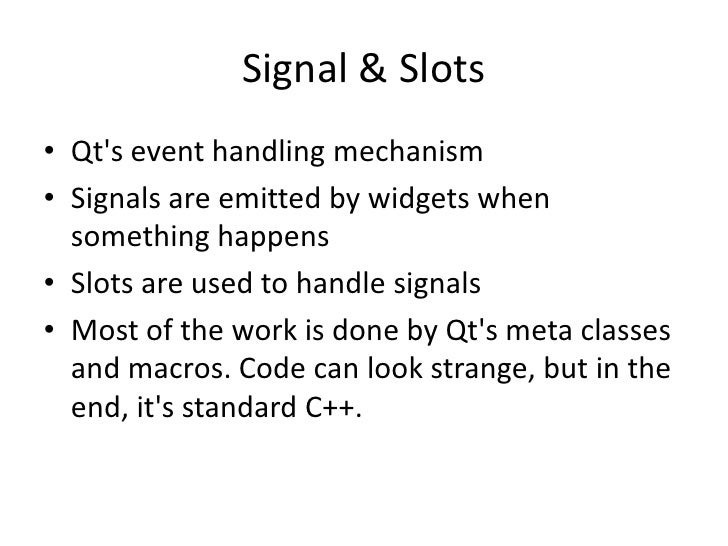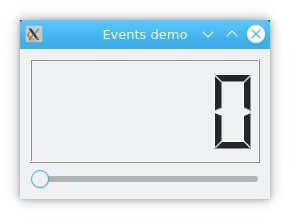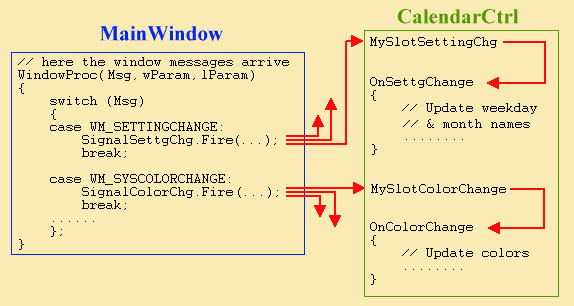Qt Signal Slot Event Loop
Qt documentation states that signals and slots can be direct, queued and auto.
Done signal will NOT be emitted when the transfer is aborted by abort method. Aborted will be emitted instead. This is a mostly convenience thing. In the most cases you don't want to do anything in done when you've aborted the transfer externally. By default CurlEasy will run on the event loop of the thread from which perform was called. As of Qt4, you can use QThread to start your own event loops. This might sound somewhat uninteresting at first, but it means you can have your own signals and slots outside the main thread. The Trolls created a new way to connect signals to slots such that signals can actually cross thread boundaries. I can now emit a signal in one thread.

It also stated that if object that owns slot ‘lives’ in a thread different from object that owns signal, emitting such signal will be like posting message – signal emit will return instantly and slot method will be called in target thread’s event loop.

Unfortunately, documentation do not specify that ‘lives’ stands for and no examples is available. I have tried the following code:
main.h:
main.cpp:
Output is:
Qt Signal Slot Event Loop 288
MySlot() is never called :(. What I’m doing wrong?

There are quite a few problems with your code :
- like said by Evan the emit keyword is missing
- all your objects live in the main thread, only the code in the run methods live in other threads, which means that the MySlot slot would be called in the main thread and I’m not sure that’s what you want
- your slot will never be called since the main event loop will never been launched : your two calls to wait() will only timeout after a very long time (and you’ll probably kill your application before that happens) and I don’t think that’s what you want either, anyway they really have no use in your code.
This code would most likely work (though I have not tested it) and I think it does what you want it to do :
Now MyObject will live in thread2 (thanks to moveToThread).

MySignal should be sent from thread1 (thought I’m not sure on that one, it might be sent from main thread, it doesn’t really matter).

No event loop is needed in thread1 since emitting a signal doesn’t need an event loop. An event loop is needed in thread2 (lanched by exec()) to receive the signal.
MySlot will be called in thread2.
Do not subclass QThread for Qt 4.4+
While Aiua’s answer is good, I want to point out some issues with QThread and Qt 4.6 or 4.7.
This article sums it up: http://blog.qt.io/blog/2010/06/17/youre-doing-it-wrong/
Lack of Documentation on Qt’s part
Qt Signal Slot Event Loop Tool
Unfortunately the problem stems from a lack of updates to documentation. Prior to Qt 4.4 QThread had no default run() implementation, which meant that you had to subclass QThread in order to use it.
If you’re using Qt 4.6 or 4.7 then you almost certainly should not subclass QThread.
Use moveToThread
The key to getting slots to execute in a worker thread is to use the moveToThread method as Aiua pointed out.
Tags: qt